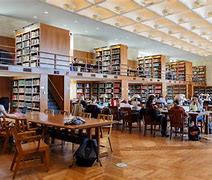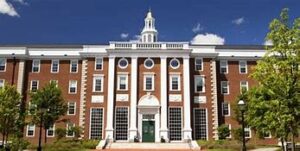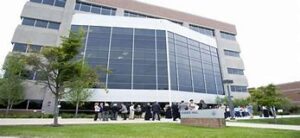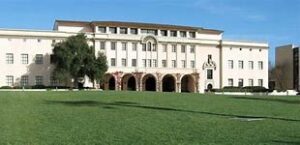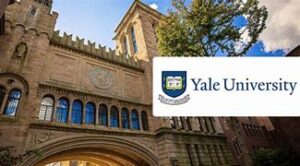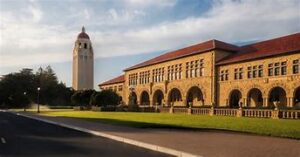Princeton University, one of the most esteemed Ivy League institutions, stands as a beacon of academic excellence, rich history, and transformative education. Situated in Princeton, New Jersey, the university has consistently been at the forefront of intellectual pursuits and groundbreaking research since its founding in 1746. With its iconic Gothic architecture, world-class faculty, Historic Hub of Learning: Princeton University – Excellence in Education and Innovation unparalleled academic programs, Princeton University embodies the essence of a historic hub of learning.
This comprehensive overview delves into the university’s illustrious history, academic offerings, research achievements, campus culture, and its profound impact on shaping global leaders.
A Legacy of Excellence
Princeton University was initially founded as the College of New Jersey in Elizabeth, New Jersey, by Presbyterian leaders seeking to provide theological training and general education. It later moved to Princeton in 1756 and adopted its current name in 1896. Princeton’s history is interwoven with the fabric of American history, with its graduates and faculty playing pivotal roles in politics, science, and culture.
Notable alumni include U.S. presidents James Madison and Woodrow Wilson, First Lady Michelle Obama, and Nobel laureates such as physicist Richard P. Feynman. The university’s storied past reflects its commitment to fostering leadership and innovation.
Academic Rigor and Interdisciplinary Learning
Princeton University offers a transformative educational experience centered on intellectual rigor and interdisciplinary collaboration. The university’s commitment to academic excellence is evident in its carefully designed undergraduate and graduate programs, which cater to a wide range of interests and career aspirations.
Undergraduate Programs
Princeton’s undergraduate education emphasizes a liberal arts approach, providing students with a broad foundation in the humanities, sciences, and social sciences. The hallmark of a Princeton undergraduate experience is the senior thesis, a year-long independent research project that challenges students to explore complex topics in depth.
With more than 30 concentrations and dozens of certificate programs, students have the freedom to tailor their academic journeys. Fields such as computer science, economics, public Historic Hub of Learning: Princeton University – Excellence in Education and Innovation international affairs, and molecular biology are particularly popular. Princeton also encourages experiential learning through internships, study-abroad programs, and community engagement.
Graduate Education
The Graduate School at Princeton University offers advanced degrees in the humanities, social sciences, natural sciences, and engineering. Graduate students are mentored by distinguished faculty members and engage in cutting-edge research that addresses some of the world’s most pressing challenges. Programs such as those offered by the Woodrow Wilson School of Public and International Affairs are renowned for producing thought leaders and policymakers.
Princeton’s commitment to small class sizes and close faculty-student collaboration ensures that graduate students receive personalized guidance throughout their academic journey.
Research and Innovation
Princeton is globally recognized for its contributions to research and innovation. The university’s faculty and students are at the forefront of breakthroughs that span disciplines, from quantum computing to climate science.
Research Institutes and Centers
Princeton hosts a variety of research centers and institutes, such as the Princeton Environmental Institute, the Andlinger Center for Energy and the Environment, and the Lewis-Sigler Institute for Integrative Genomics. These institutes serve as hubs for interdisciplinary collaboration, fostering partnerships between faculty, students, and external organizations.
The Princeton Plasma Physics Laboratory (PPPL), a Department of Energy national laboratory, is a testament to the university’s leadership in advancing sustainable energy solutions. PPPL researchers are pioneering efforts to harness fusion energy, a potential game-changer for clean energy production.
Notable Contributions
Princeton has been a trailblazer in numerous fields. For example, its mathematicians have contributed to significant advancements in topology and geometry, while its physicists played pivotal roles in developing the theories of relativity and quantum mechanics. The university is also home to Nobel Prize-winning economists whose work has shaped modern economic theory and policy.
The university’s dedication to research extends beyond the sciences. Scholars in the humanities and social sciences investigate pressing societal issues, such as global inequality, political systems, and cultural transformations.
Architectural Splendor and Campus Culture
Princeton University’s picturesque campus is a harmonious blend of historic charm and modern functionality. The Collegiate Gothic architecture, characterized by spires, arches, and ivy-clad walls, reflects the university’s storied past. Iconic structures such as Nassau Hall and the Princeton University Chapel stand as enduring symbols of tradition and excellence.
Student Life
Princeton offers a vibrant and inclusive community, where students engage in diverse extracurricular activities, clubs, and traditions. The university’s six residential colleges provide a supportive environment where students live, learn, and form lifelong connections.
The annual Princeton Reunions event is a cherished tradition, bringing alumni from around the world back to campus for a celebration of shared memories and achievements. Another highlight is the Cane Spree, a spirited competition between first-year students and sophomores.
Cultural and Artistic Opportunities
The university is a cultural hub, offering numerous opportunities for artistic expression and appreciation. The Lewis Center for the Arts and the Princeton University Art Museum host exhibitions, performances, and workshops that enrich the campus experience. Renowned artists, writers, and musicians often visit Princeton to share their craft and inspire students.
Commitment to Diversity and Inclusion
Princeton University is deeply committed to fostering an inclusive community that celebrates diversity in all its forms. Through initiatives such as the Office of Diversity and Inclusion, the university seeks to create an environment where all students feel valued and supported.
Princeton offers financial aid packages that ensure affordability for students from all socioeconomic backgrounds. Its groundbreaking financial aid program, which replaces loans with grants, makes a Princeton education accessible to talented individuals regardless of their financial circumstances.
Global Influence and Leadership
Princeton’s influence extends far beyond its campus. The university’s alumni, faculty, and research have shaped global discourse and decision-making in areas such as politics, science, and the arts.
Notable Alumni
Princeton’s alumni network includes leaders who have made significant contributions to society. U.S. presidents, Supreme Court justices, business magnates, and renowned artists count Princeton as their alma mater. This extensive network offers current students invaluable mentorship and career opportunities.
Global Outreach
Princeton is dedicated to addressing global challenges through initiatives that promote international collaboration. Programs like the Princeton in Africa, Princeton in Asia, and Princeton in Latin America fellowships enable students and alumni to contribute to sustainable development and social progress worldwide.
Sustainability and Future-Oriented Goals
As a historic institution with a forward-looking vision, Princeton is committed to sustainability and environmental stewardship. The university has set ambitious goals to reduce its carbon footprint and integrate sustainable practices into campus operations. The construction of energy-efficient buildings and the use of renewable energy sources exemplify Princeton’s commitment to a greener future.
Conclusion
Princeton University, with its rich history, world-class academics, and vibrant campus life, remains a historic hub of learning that inspires generations of students and scholars. Its unwavering commitment to excellence, innovation, and inclusion ensures its continued prominence on the global stage. From shaping the minds of future leaders to advancing research that addresses humanity’s most pressing challenges, Princeton embodies the ideals of intellectual curiosity and societal impact. Historic Hub of Learning: Princeton University – Excellence in Education and Innovation it builds on its storied legacy, Princeton University stands as a testament to the enduring power of education and its ability to transform the world.

